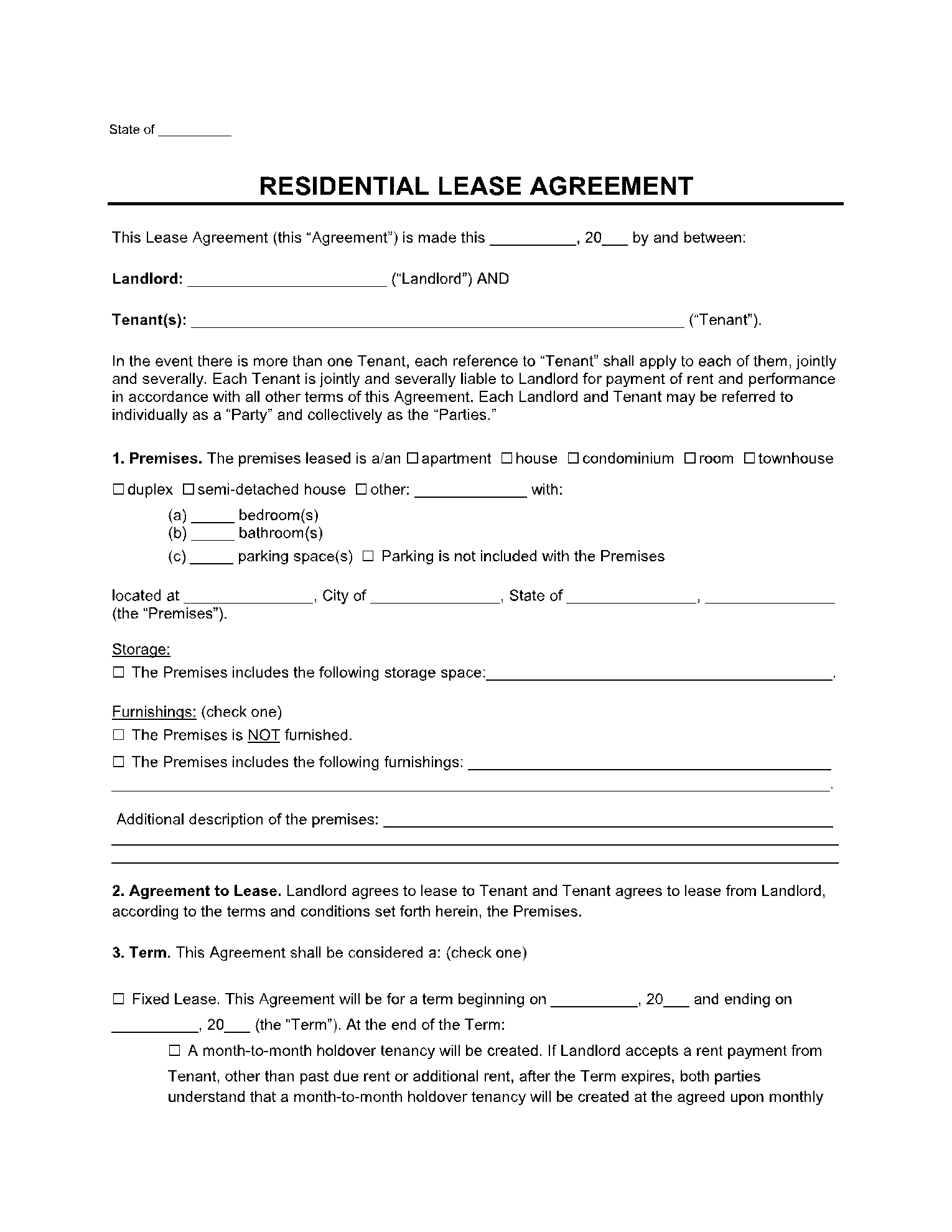Introduction
The New York standard residential agreement understands and permits a proprietor or landowner of the property to lawfully lease habitable space to another person. The occupant will be needed to pay the lease and assume liability for a bit or the entirety of the utilities, a condition to be resolved during the exchanges between the parties.
New York Standard Residential Lease Agreement
The New York Rental Lease Agreements permit landowners to lease business and private properties to acknowledged inhabitants. Endorsed by a lessor or lessee(s), the records submitted by tenants must make predictable installments in return for being conceded the option to live (or work) in the property.
Moreover, New York has moderately fewer compulsory conditions to follow. Along these lines, property managers ought to guarantee they are covered by adding anything extraordinary to their renting circumstance as a condition in a rent.
New York Residential Lease Agreement Federal laws
Federal law of New York Residential incorporates certain data, which includes:
- The names of both the property manager and inhabitant
- Portrayal and address of the property
- Limitation of pets
- Data with respect to wellbeing risks
- How much are lease and security stores expected
- The area and date of where and when the lease is to be paid
Moreover, to ensure lawful and monetary rights, it is essential to acclimate with the specificities and subtleties the State of New York requires when executing lease agreements.
New York Residential Lease Agreement Security Deposits
There are no maximum security deposits established by state law. However, Landlords are legally necessary to return stores within fourteen (14) days after the end of the tenant contract. Therefore, security deposits are abstracted for two main reasons:
- To cover any neglected lease, and
- To fix the occupant made harm to the unit (excluding standard mileage).
However, Landlords who store an occupant's security deposits in a bank should inform the tenant corresponding as a hard copy, the name and address of the financial association just as the measure of the store.
Although, landlords that own six or more family abiding units are needed to gather and return accumulated interest to inhabitants. The store should be kept inside a NY-based revenue-bearing ledger.
Lease Agreement State Disclosure
Before the rent is marked, Landlords are needed to give new tenants certain data about the unit they want to lease, and that fluctuates contingent upon the state. However, landowners who neglect to agree still danger legitimate activity by tenants.
- Bug Disclosure – Required to advise the tenants of any pervasion.
- Toxic Paint – Required if the lodging unit was worked before 1978.
- Move-in Checklist – Not needed yet suggested for any occupant that sets up a security store at the rent marking the hour.
- Land Disclosure – Only required if the property was introduced to the tenant through a realtor.
- Windows Guards – Required to be passed out to occupants who live with a kid age ten or more.
Conclusion
An agreement to rent is lawfully restricted in New York. When the landowners and tenants sign the lease, they are bound to the terms introduced there. Inability to consent can prompt lawful outcomes.
However, by marking the expansion, it isn't required for the parties to execute another rent. By and large, all terms of the past rent are persisted by reference in the augmentation. Typically, the expansion just expands the term of the earlier rent and may contain arrangements for a changed lease installment.
